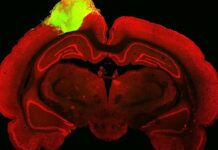As the holy month of Ramadan commences, some Muslims with eating disorders, including bulimia and binge-eating disorder, are grappling with the challenge of fasting while attempting to sidestep slipping into a harmful cycle. Muslims with eating disorders also express feeling marginalized when attempting to obtain support from their own communities, as well as from the public health system. This article delves into the experiences of some Muslims with eating disorders during Ramadan and the systemic hurdles they encounter while seeking mental health support.
Fasting and Eating Disorders: A Complicated Relationship
During Ramadan, Muslims fast from sunrise to sunset and break their fast with a date and water at sunset, followed by a larger meal. While fasting can be a spiritual experience, it can also exacerbate eating disorders by masking restrictive dieting patterns. Controlling hunger during fasting could generate a desire to binge large amounts of food quickly at iftar, the breaking of the fast after sundown, creating a “binge-purge cycle” that could set back recovery. The complexity of this relationship means that Muslims with eating disorders may have a hard time navigating Ramadan, especially when attempting to avoid exacerbating their disorder.
Challenges Faced by Muslims with Eating Disorders: Stigma and Marginalization
Mental health illnesses, such as eating disorders, do not receive the same level of acknowledgement as physical illnesses. Muslims who opt out of fasting due to mental health illnesses may face “guilt and shame” from their communities and society at large. Some South Asian and Muslim girls also experience cultural pressures to adhere to strict gender roles, which can contribute to the development of eating disorders. Furthermore, Muslims of color face greater disparities in accessing help due to institutional discrimination and interpersonal racism and stigma, which can further exacerbate their struggles.
Accessing Support: Overcoming Systemic Hurdles
Some Muslim doctors and psychologists are attempting to bridge the gap between faith leaders and worshippers who encounter marginalization when attempting to obtain support from their own communities. To provide effective guidance and support, therapists who understand the cultural pressures that Muslims face should be available. Muslims who struggle with mental health issues during Ramadan can engage with the holy month in ways that do not involve fasting, such as reading the Quran, attending nightly taraweeh prayers, or donating to a feeding program. However, accessing these support services is often challenging, especially when trying to obtain help that caters to their unique cultural background.
Breaking the Cycle of Shame and Guilt: Empathy and Acceptance
Muslims with eating disorders can engage with the holy month of Ramadan in various ways aside from fasting. Faith leaders and family members should recognize the challenges Muslims with mental health struggles face during Ramadan and offer guidance to help break the intergenerational cycle of shame and guilt that exists across society. Muslims who suffer from eating disorders can also benefit from accessible therapy services, workshops, support groups, and educational talks tailored to their cultural background. By providing support and guidance, faith leaders and mental health professionals can help Muslims with eating disorders to engage with Ramadan in ways that are spiritually fulfilling and promote mental health and well-being.
Conclusion
Muslims with eating disorders face unique challenges during Ramadan and require support that takes into account their cultural and religious backgrounds. The need for greater awareness and education about eating disorders within Muslim communities is critical, as is the need for more culturally sensitive mental health services that cater to the needs of Muslim patients. Breaking the cycle of shame and guilt necessitates empathy, acceptance, and recognition of the struggles faced by Muslims with mental health issues during Ramadan and beyond. By providing support and guidance, faith leaders and mental health professionals can assist Muslims with eating disorders to engage with Ramadan in ways that promote spiritual fulfillment and mental well-being. It is essential to prioritize accessible support and tailored guidance that acknowledges the unique challenges that Muslims with eating disorders face, and work towards breaking the cycle of shame and guilt that affects the entire community. With greater awareness, empathy, and acceptance, Muslims with eating disorders can receive the support they need to navigate Ramadan while promoting their mental and emotional health.
Google News | Telegram
















